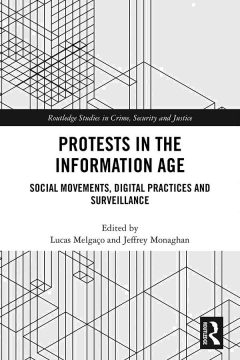Protests in the Information Age:
Social Movements, Digital Practices and Surveillance
 Information and communication technologies have transformed the dynamics of contention in contemporary society. Social networks like Facebook and Twitter and devices like smartphones have increasingly played a central role in facilitating and mobilizing social movements throughout different parts of the world. Concurrently, the same technologies have been taken up by public authorities (including security agencies and the police) and have been used as surveillance tools to monitor and suppress the activities of certain demonstrators.
Information and communication technologies have transformed the dynamics of contention in contemporary society. Social networks like Facebook and Twitter and devices like smartphones have increasingly played a central role in facilitating and mobilizing social movements throughout different parts of the world. Concurrently, the same technologies have been taken up by public authorities (including security agencies and the police) and have been used as surveillance tools to monitor and suppress the activities of certain demonstrators.
This book explores the complex and contradictory relationships between communication and information technologies and social movements by drawing on different case studies from around the world. The contributions analyse how new communication and information technologies impact the way protests are carried out and controlled in the current information age. The book focuses on recent events that date from the Arab Spring onwards and pose questions towards the future of protests, surveillance and digital landscapes.
